Around the time I started driving, many of my friends were listening to a lot of hip hop. These same friends consistently refused to ride with me because they knew my music collection consisted almost entirely of Slayer and before-they-sucked Metallica. This is to say that I entered Straight Outta Compton with low expectations and only a passing familiarity with the personages and events the film dramatizes. I was therefore understandably surprised at how much I enjoyed the show.
As a biopic, Compton performs admirably, if somewhat predictably. The story of N.W.A.’s evolution from a ghetto novelty to one of the most influential musical acts of the 20th century is inherently compelling — and following Eazy-E (Jason Mitchell) as the narrative’s protagonist was a particularly smart angle, given his tragic demise and the natural stopping point that provides for the script. This is not the only good decision made by the production, as casting relative unknowns in the lead roles (including Ice Cube’s son playing his dad) gives the story and the characters room to breathe without the weight of audience preconceptions that would accompany bigger names. The cast is more than up to the challenge, with Mitchell’s performance being a standout. In fact, the film’s only notable name, Paul Giamatti as record manufacturer turned managerial Svengali Jerry Heller, might be one of its weakest links. Friday director F. Gary Gray’s work is competent if not always confident, including some particularly effective use of stock footage to lend the story temporal context (yes, Matt Lauer once had hair). Strong performances and excellent pacing, at least for the first hour, allow the constituent pieces of the film a real chance at cohering into something great, although that never quite happens.
While Compton is indeed very good, it is not without its shortcomings. Excessive moralizing leaves protracted segments of the film feeling like an after-school special and, while Gray’s instincts for comedy and action seem sound, his direction seems to falter in scenes with big emotional beats. Character development is accomplished effectively, but there is palpable sense of sanitization at play here. Likely a result of placating the giant egos involved (Dr. Dre and Ice Cube both produce), one is left with the sense that these characters are being portrayed not as they actually were, but as they might’ve been described by their mothers — the roughest edges being smoothed out in the process.
As a whole, the film feels far too fond of itself, occasionally drifting into the rocky waters of tongue-in-cheek self-referentialism. It is a clever film in many respects, but not nearly so clever as it seems to believe. Most damning, however, is the 147-minute running time. The movie drags painfully in the second act, only to rush through the third to an abrupt conclusion. Mercifully, I will be spared the three-and-one-half-hour (!) director’s cut that has been promised. And yet the film generally works, using its period backdrop to explore issues of race, financial disparity and police brutality, which are, sadly, still topical nearly 30 years after the eponymous album’s release. Fun, poignant, and compelling, Straight Outta Compton doesn’t quite achieve its full potential, but deserves the box-office success and critical praise it’s currently enjoying.
Rated R for language, violence, nudity, and drug use.

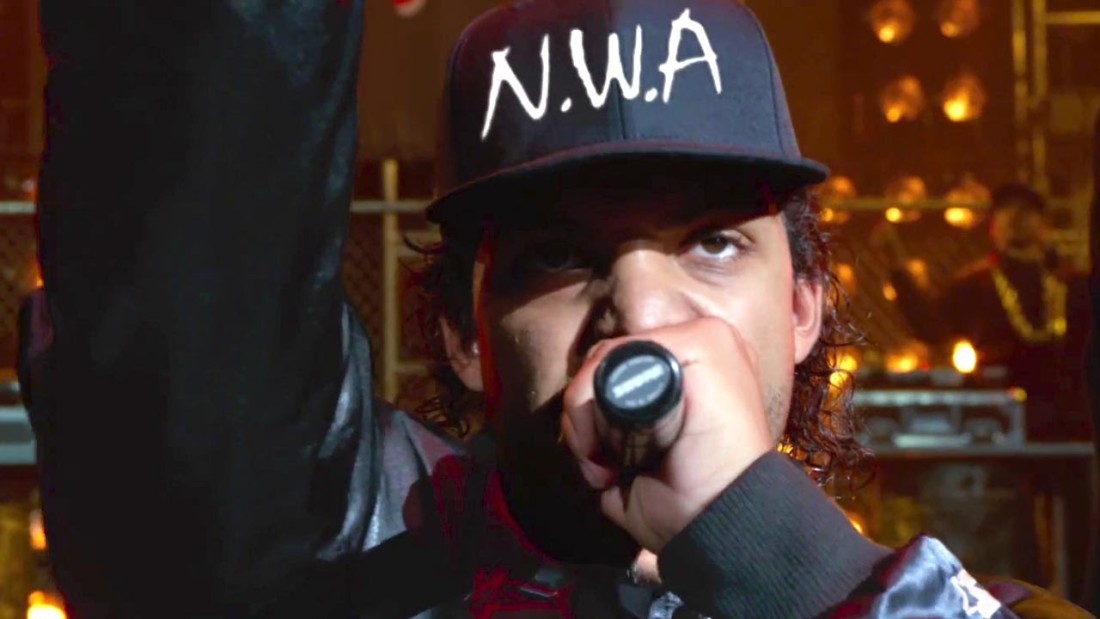
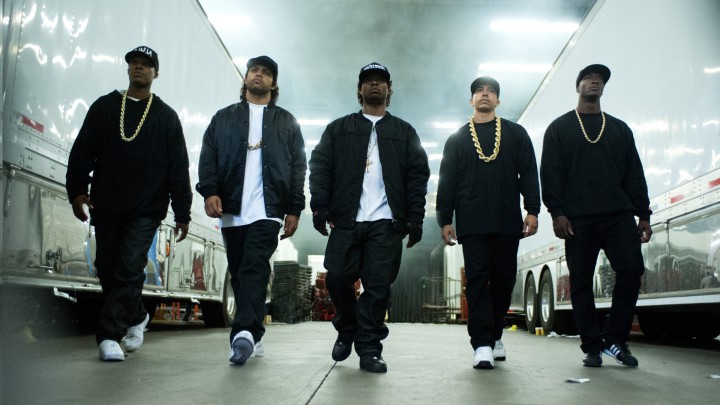

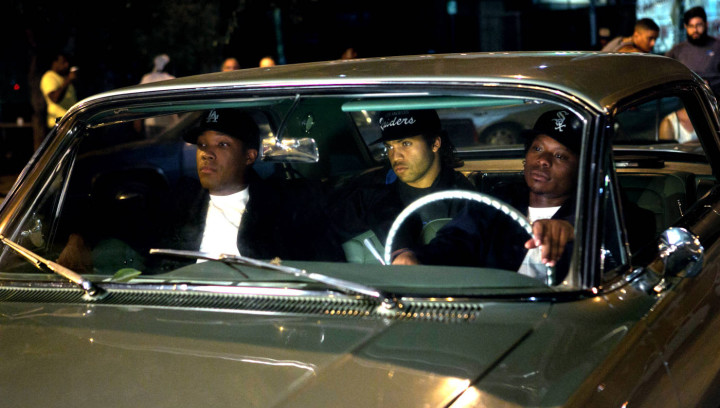
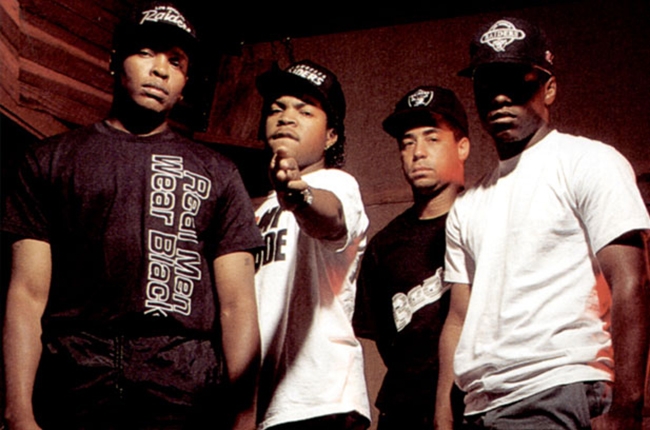
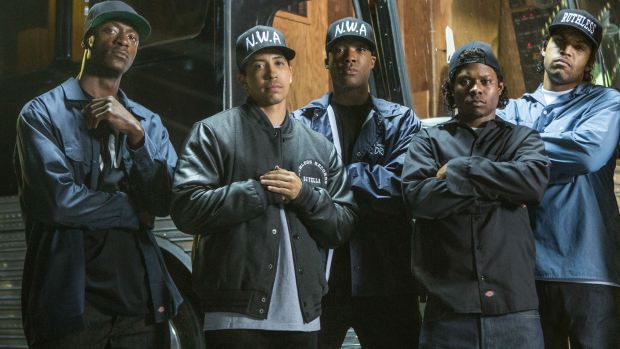

I am far from a fan of rap but I can sure appreciate a good bio pic. This looks to be one. In bio pic terms how does this compare to GET ON UP? Last year’s music bio that no one saw.
Considering I thought Get On Up was mostly garbage, I far prefer Compton.
Apparently I’m in the same boat with everybody else, as I missed that one.
I think I may have a screener. Never watched it, though.
Eddie Murphy’s James Brown impersonation is better – and it doesn’t go on for close to 2.5 hours.
Oh, the film wasnt that bad.
I never want to see it again.
Too hot in the hot tub!
I remember Dee Barnes being the but of a many jokey rap lyrics back in the day. I might just be misremembering, but it seems like more than NWA rapped about “the incident.”
It’s referenced in the last verse of Eminem’s Guilty Conscience. I think Dre has a sense of humor about the incident, which i think is cool because why spend time being haunted by past mistakes?
Barnes watched Compton and wrote up her reactions for Gawker. Her insights are illuminating: http://gawker.com/heres-whats-missing-from-straight-outta-compton-me-and-1724735910
I’m glad you boys know who and what you’re talking about.
Apparently, the assault WAS included in an earlier version of the script
http://touch.latimes.com/#section/-1/article/p2p-84242694/
Oh man, Dre in a “Real Men Wear Black” t-shirt. That guy just can’t escape the fashion police can he?
How do they handle the Eazy E AIDS thing?
In a drawn out manner with lots of coughing. Had he not collapsed when he did, I would have dropped my grade by a half or full letter, but the film hits a nice final stretch once he does and yields some nice hospital moments. Not playing “Crossroads” when his death is announced felt like a missed opportunity, though.
Does Ice Cube argue with a Coors can in this?
See it and find out.